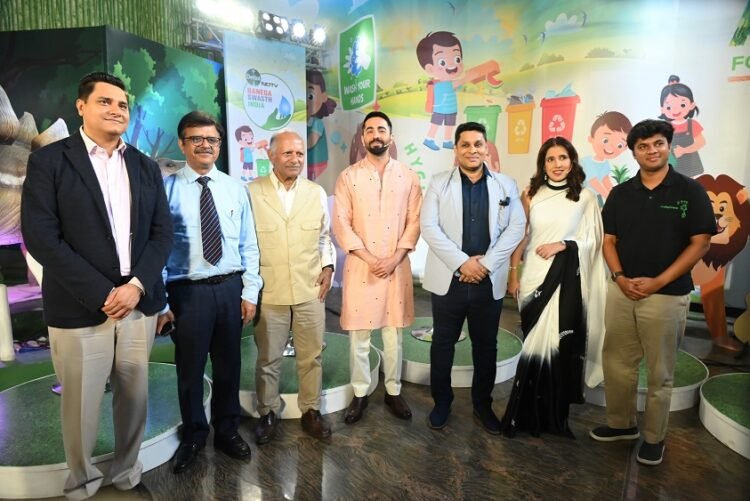Aims to reach 4.5 million beneficiaries, educating them on essential hygiene practices
NEW DELHI (India CSR): Reckitt, one of the world’s leading consumer health and hygiene companies, has launched the Dettol School Hygiene Education Programme in Delhi under its flagship campaign, Dettol Banega Swasth India. In collaboration with Jagran Pehel, the social initiative arm of Dainik Jagran, a Memorandum of Understanding (MoU) has been signed with the Municipal Corporation of Delhi (MCD) to implement the campaign across MCD schools in 12 zones of Delhi. The initiative aims to reach 4.5 million beneficiaries, including school children, teachers, and parents, encouraging and empowering communities to adopt better WASH (Water, Sanitation, and Hygiene) behaviors and practices.
Launch and Key Activities
Launched by campaign ambassador Ayushmann Khurrana, the Dettol School Hygiene Education Programme will focus on promoting hygiene practices by training teachers and students and raising awareness through various activities in Delhi schools. As part of the campaign, practical sessions will be conducted aligned to “Bajegi Ghanti, Dhulenge Haath” campaign, to educate students on the importance of handwashing. Additionally, hygiene corners equipped with Dettol soaps, sanitizers, and handwashes will be installed.
Addressing Public Health Concerns
Poor hand hygiene has significant repercussions on public health in India, particularly affecting children who are more vulnerable to Diarrhoeal diseases. This has far-reaching economic repercussions, including healthcare expenses and lost productivity. The Dettol School Hygiene Education Programme aims to address these issues by promoting good hygiene practices and creating a healthier and safer learning environment, leveraging Dettol’s trusted brand reputation.

Statements from Key Stakeholders
Gaurav Jain, Executive Vice President, Reckitt – South Asia: “At Reckitt, we are consistently working to build a cleaner and healthier world through initiatives that focus on inculcating proper hygiene practices. The launch of Dettol School Hygiene Education Programme in Delhi is a testament to our commitment to making a positive impact that reaches every corner of our great land. Over the years, the program has successfully created a significant impact, fostering active participation and engagement from children, with strong support from teachers and other stakeholders. By equipping the next generation with the tools and knowledge to maintain good health and hygiene, we aim to drive behaviour change and instill lasting habits among millions of children across India.”
Focus on Reducing Diarrhoeal Diseases
In partnership with Municipal Corporation of Delhi, the initiative is focused on reducing Diarrhoeal diseases among children aged 0-5 and increasing school attendance through a comprehensive hygiene curriculum across Delhi. The goal is to develop children as ambassadors of cleanliness and hygiene, ingraining handwashing as a key aspect of good health.
Importance of Handwashing
Sameer Gupta, Executive President & Treasurer, Jagran Prakashan Ltd.: “The link between hygiene and public health is clearer than ever, yet proper handwashing practices are still lacking in many parts of the country. The Dettol School Hygiene Education Programme is an essential initiative to enhance sanitary practices in schools, homes, and communities by promoting behavioral changes. We are proud to partner with Reckitt and the Municipal Corporation of Delhi in empowering school teachers and students, instilling vital habits that will create a lasting positive impact on our society.”
Key Focus Areas for Handwashing
The programme sensitizes children about six critical occasions for handwashing, including washing hands after defecation and using toilets, before eating, before preparing and serving food, before feeding infants/children, after cleaning a child’s bottom, and after coughing or sneezing during illness. The initiative aims to create a lasting impact on public health and hygiene practices by fostering an enabling environment in educational institutions, empowering teachers as agents of change, and improving students’ knowledge, attitudes, behaviors, and practices related to hygiene and sanitation.
(India CSR)







